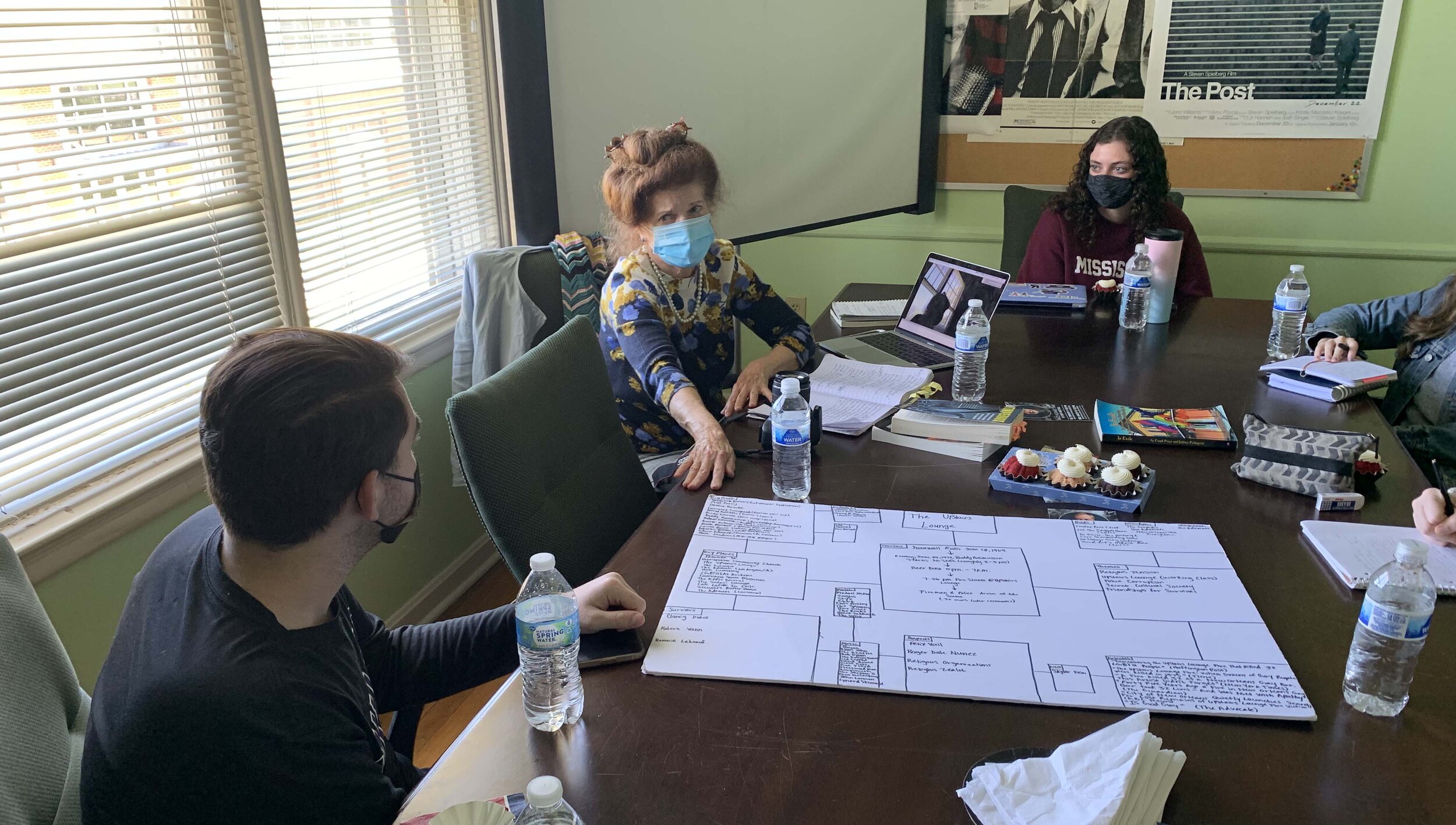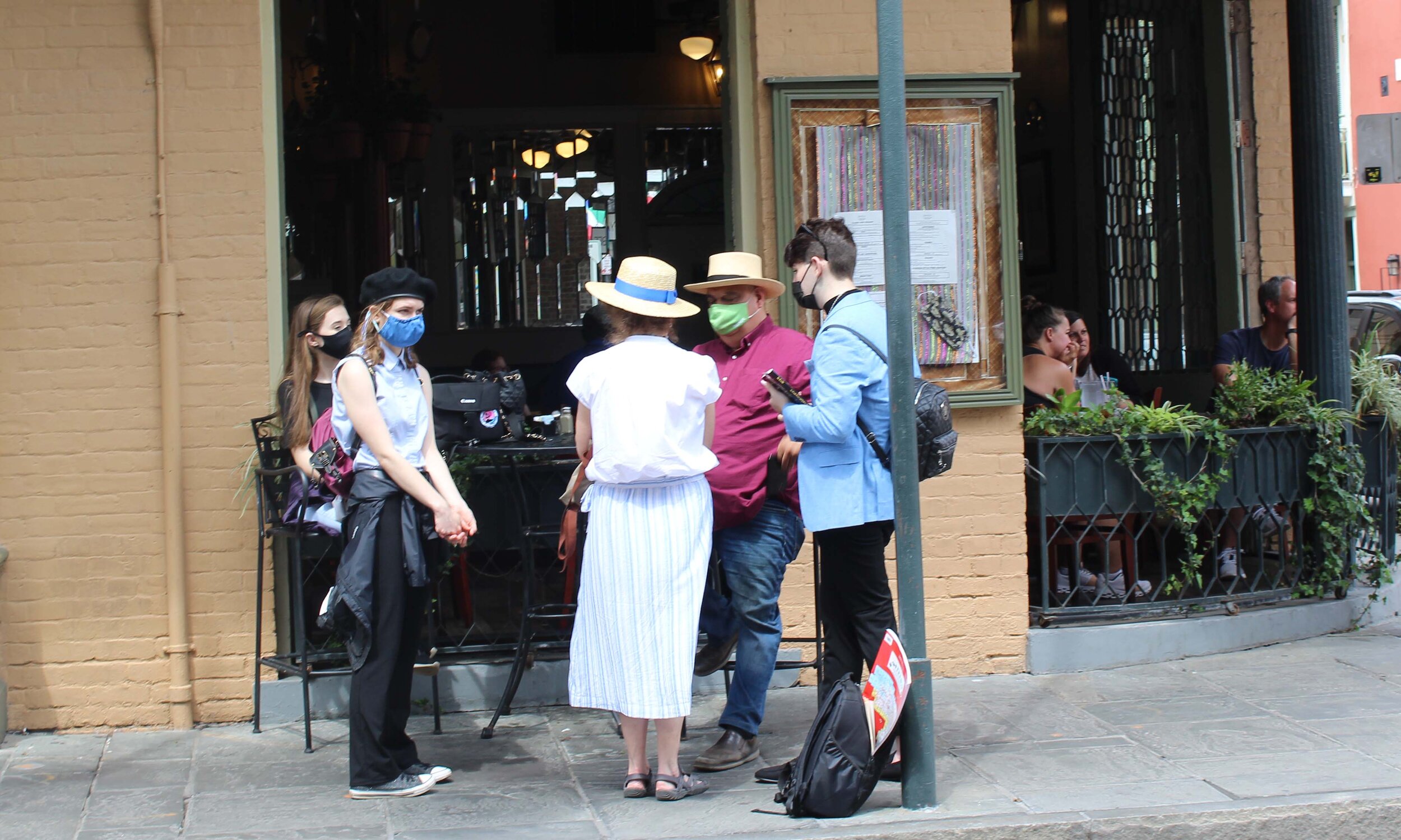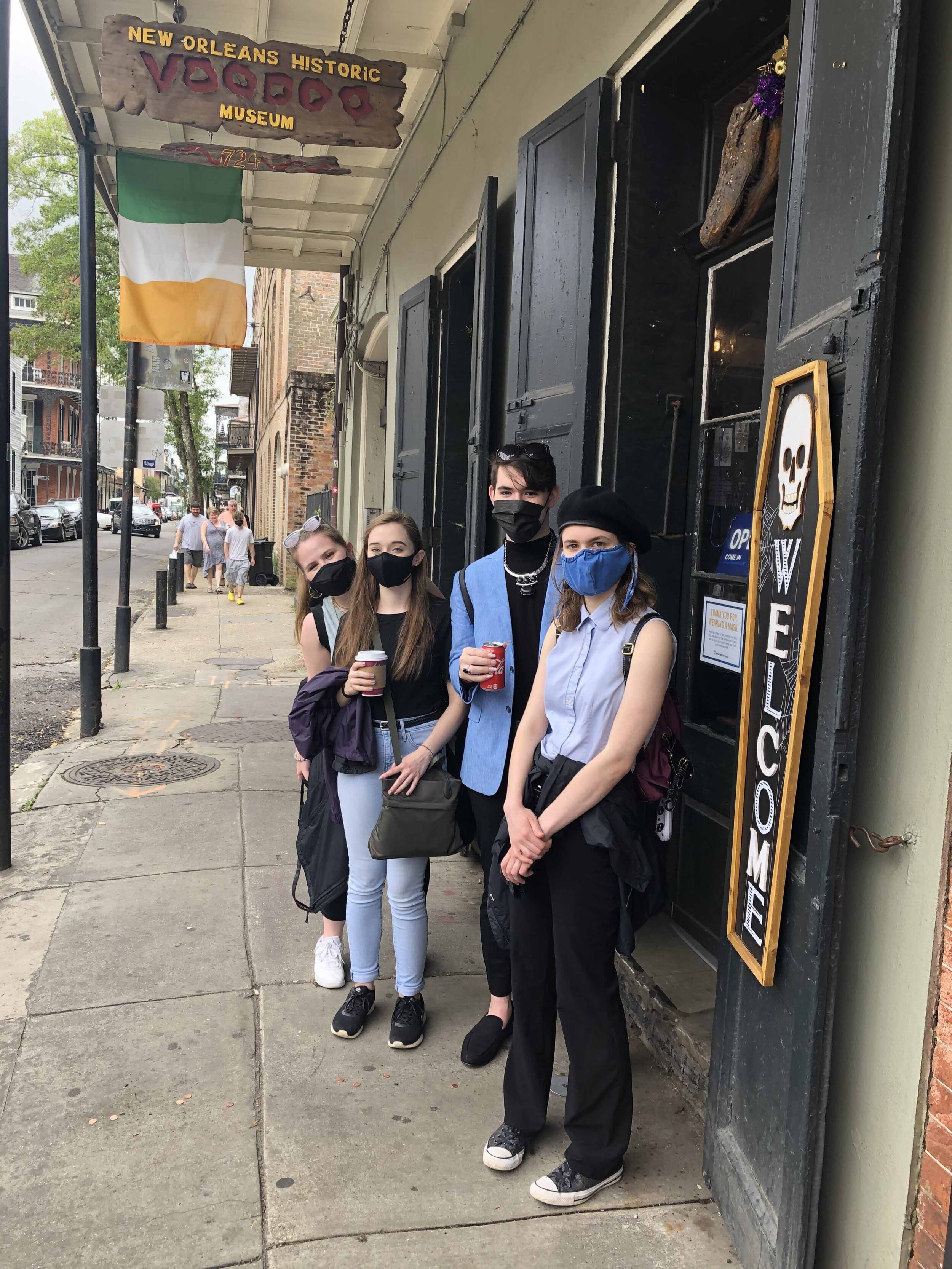MCIR’s Justice Squad Investigates A Cold Case in New Orleans

As supervisor of MCIR’s Justice Squad, I try to guide college students who surpass me in skills!
MCIR’s Justice Squad includes undergraduates from Millsaps College who are interested in investigative journalism. Each semester, members can propose their own projects or Jerry Mitchell assigns a cold case for their investigation. I tell the members they should consider their MCIR project equivalent to an independent study, with a 20-page paper or a photography portfolio as the final result. Once a project is edited, it is published in the Justice Squad’s section of the MCIR website.
In spring 2021, our cohort of members included two students who had completed Millsaps English Department’s Eudora Welty Lab, in which students produce interactive versions of the great Jackson, Mississippi, writer’s short stories. We also had a member who was a skilled photographer. I could not have produced what these three did.
Justice Squad members worked in two teams, with one member assigned to produce an interactive version of the print investigation. This week, you can read one team’s story and explore the interactive version.
For the first time, the spring Justice Squad included two freshmen, Lane Craft from Jackson and Macy Weaver from Vicksburg. Lane had been to the Mississippi Book Festival, where he met Robert W. Fieseler, who in 2018 published Tinderbox: The Untold Story of the Up Stairs Lounge and the Rise of Gay Liberation. Fieseler’s literary and comprehensive book, which has been called an essential civil-rights history, describes a 1973 arson attack on a New Orleans gay bar. The fire killed 32 people -- the most gays killed until the mass shooting at the Pulse nightclub in Orlando, Florida, in 2016. The 1973 fire also left 15 injured, three very seriously. No one was ever charged, the prime suspect is now dead, and Hurricane Katrina destroyed crucial evidence and police reports.

The Justice Squad and Ann Marie Cunningham meet about the Up Stairs Lounge cold case. MCIR
Up Stairs Lounge patron and longtime gay activist Stewart Butler, who in 1989 succeeded in having discrimination against gays banned in New Orleans, described the Lounge as “more of a social club than a bar, a gathering place for friends.” Butler used to take his dog with him. The fire did succeed in igniting gay activism in New Orleans’ almost completely closeted community of the 1970s.
Lane proposed that we examine the Up Stairs Lounge fire as a cold case. Robert Fieseler generously gave Lane more than three hours of interviews over the phone. But for a journalist, there’s no substitute for being there.
So, I took the team there -- to New Orleans, Lane and Macy, along with Rae Switzer, an interactive producer who covered for Lindsey Gordon, and MacKenzie Moffatt, our talented and energetic photographer. We were not yet vaccinated, so the trip was difficult and unnerving. We had to work almost entirely in New Orleans’ French Quarter. At all hours, the neighborhood was very crowded with unmasked tourists who had decided to take a break from quarantine.
But we were able to meet with Fieseler and fellow historian Frank Perez and interview them in person. The young team -- used to a country where there are legal protections for gays, same-sex marriage, and treatment for AIDS -- found out what the 1970s meant for gay people, known as “homosexuals” then. “You could be fired,” Perez said. “You could be evicted. You could end up in a mental hospital.”

Members of MCIR's Justice Squad and Journalism Lab Reporter in Residence Ann Marie Cunningham interview author Frank Perez in New Orleans French Quarter. MacKenzie Moffat, MCIR Justice Squad
Lane went on Perez’s tour of gay New Orleans, which includes apartments where William Faulkner and Tennessee Williams lived during their years in New Orleans. We all went to Cafe Lafitte in Exile, New Orleans’ oldest gay bar and the subject of Perez’s latest book, and to the Golden Lantern, the city’s second oldest gay bar that offers the same kind of come-one-come-all, neighborhood hangout ambience that the Up Stairs Lounge had. Most of us stayed outside to videotape and take photos.
Of course we visited the site of the Up Stairs Lounge. The building still stands, and on the sidewalk, there is a brass plaque that was installed in 2003, the 30th anniversary of the fire, listing the names of all those who were killed. We were not allowed through a doorway from Iberville Street that opens onto the staircase that leads up to the burned-out bar on the second floor.

The Justice Squad team poses outside New Orleans Historic Voodoo Museum. Left to right, MacKenzie Moffett, Rae Switzer, Lane Craft and Macy Weaver. Ann Marie Cunningham/MCIR
The Discovery Channel and a couple of independent producers are working on documentaries for 2023, which will mark the 50th anniversary of the fire. Eventually, we all will be able to see what remains of the staircase and the bar itself. In 2018, artist Skylar Fein produced an exhibit devoted to the Up Stairs Lounge. He reproduced the upstairs entrance to the bar, along with its flocked red wallpaper and curtains, which caught fire immediately.
As in 1973, today’s New Orleans still doesn’t have a gay women’s bar. But gay people can feel much safer, more visible and accepted than they did in 1973. The Metropolitan Community Church of New Orleans, a gay-friendly church whose two clergy and a dozen members died in the Up Stairs Lounge fire, is flourishing in a new space in the Garden District, where we were welcomed. Congregants whom we met appreciated our work.
On June 24, the 48th anniversary of the Up Stairs Lounge fire, gay activists placed a rainbow flag and flowers at the old entrance to the bar. Metropolitan Community Church’s Rev. Lonnie Cheramie led a prayer service; participants held lit candles. Perez held a special tour and wrote a guest column for New Orleans’ principal newspaper, the Times-Picayune, about the fire, the prejudice against gays that contributed to a sloppy police investigation, and gay activism in New Orleans. Perez’s column would have been unthinkable in 1973. The Upstairs Lounge fire actually attracted more press coverage after the Pulse shooting, than it did in 1973.
Ann Marie Cunningham is a Columbia University Lipman Fellow for 2020 who will be working with the Mississippi Center for investigative Reporting. She is a veteran journalist/producer and author of a best-seller. Her work has appeared in The New York Times, Los Angeles Times, Technology Review, The Nation and The New Republic. Contact her at amc@mississippicir.org.
